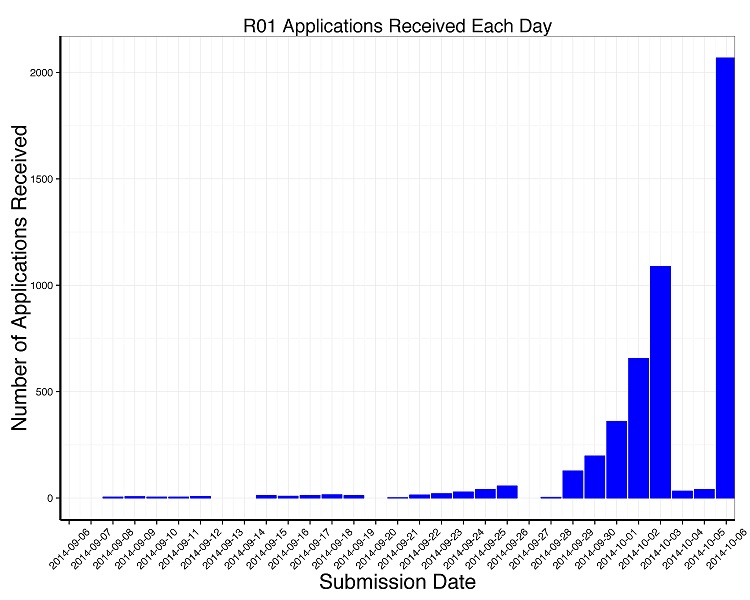NIH Discusses Disadvantages of Submitting Proposals on the Deadline Date
In a recent article posted on the National of Institutes of Health (NIH) Extramural Nexus blog, NIH’s Deputy Director for Extramural Research discusses the disadvantages of submitting proposals on the deadline date and provides a look at some interesting data.
Figure 1 shows the association of date with number of R01 applications received by NIH for consideration for a deadline date of October 6, 2014. NIH received 2,788 applications from September 6 through October 5. An additional 2,068 applications, or 43% of the total, came in on the October 6 deadline date. Even among the applications received before the deadline, the vast majority came in the week before.

Figure 1. Number of R01 applications received by NIH each day leading up to the Oct. 6, 2014 deadline date
It may be worth noting that it is an institutional official, usually in the office of sponsored programs who is responsible for submitting the applications. Therefore, PIs may not have built in enough time for the authorized organizational official to process and submit the application earlier.
Table 1 shows the results for the R01 applications. The later applications — that is those received on the October 6 deadline date — were less likely to be discussed.
Table 1: R01 Outcomes According to Date of Submission
| When Received | Number | Discussed | Awarded |
| Sept 6 – Oct 5 | 2,788 | 1,319 (47%) | 240 |
| On Oct 6 | 2,068 | 880 (43%) | 186 |
These findings seem to suggest no clear advantage for waiting until the last day. If anything, at least for R01 applicants, there may be a disadvantage in that the last-day submissions were less likely to make it to discussion.
Excerpted from NIH Extramural Nexus Open Mike.
To view the complete article see, A Grant Submission New Year’s Resolution





